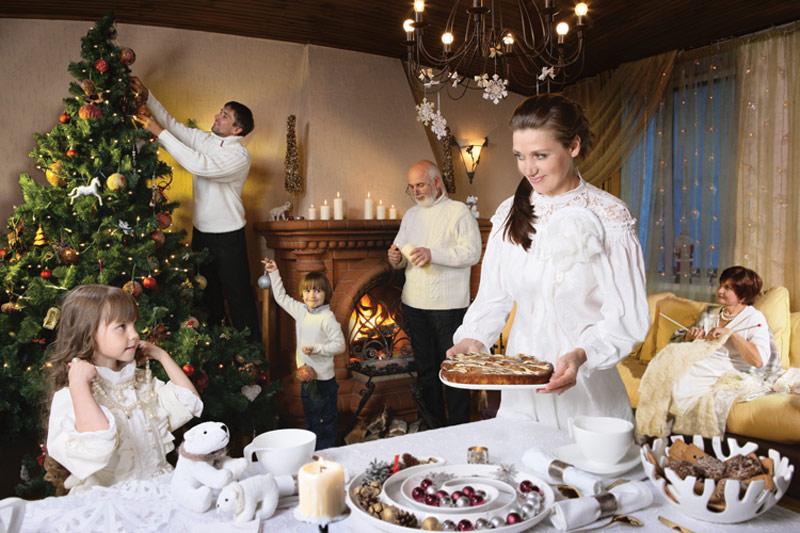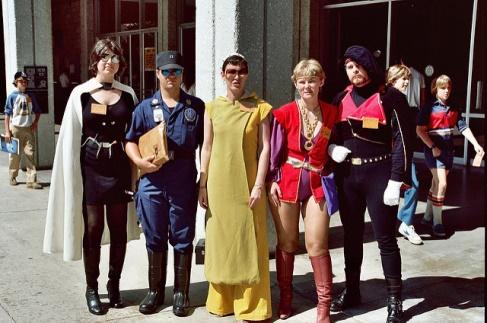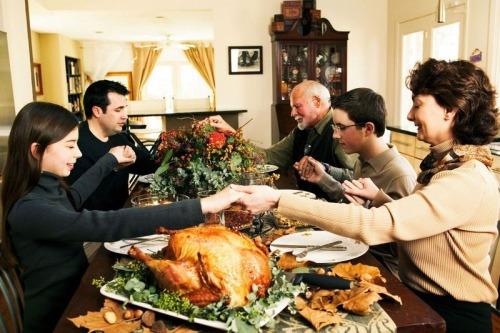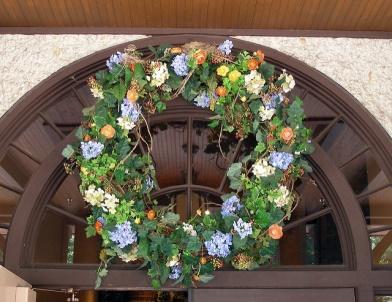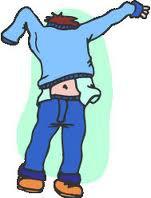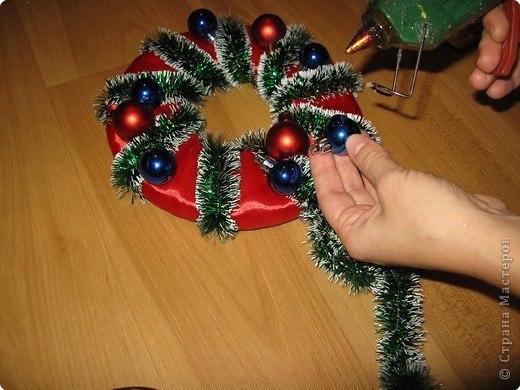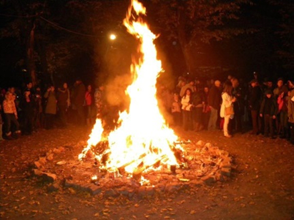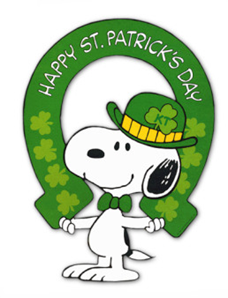Английские упражнения на тему праздники помогут Вам не только закрепить названия праздников по-английски, но и обогатят знания о традициях. В статье будут упражнения посвященные празднованиям в целом, далее я планирую цикл упражнения, посвященных конкретным праздникам.
Лексические упражнения по теме Праздники.
Следующие упражнения – holidays exercises – направлены на отработку лексики по теме праздники. Вы познакомитесь с основными выражениями, которые помогут Вам составить рассказ про праздники на английском, а также выучите названия праздников по-английски.
Exercise 1. Match the beginning and the end of the holiday phrase.
|
|
Exercise 2. Use the words in the box to complete the sentences
Historical, remember, independence, Christmas, celebrate, religious, work, dancing, national, official, during, food, drink
People in the United States (1) ____________ the Thanksgiving Day on the fourth Thursday in November. The fourth of July is also a (2) ____________ holiday. This is the day when Americans celebrate their (3) ____________ from Britain.
In Britain people don’t really celebrate (4) ____________ events in this way. Here, the main holidays are (5) ____________ holidays, (6) ____________ and Easter. There are several one-day holidays (7) ____________ the year. These are (8) ____________ public holidays when people don’t go to (9) ____________. There are days when people (10) ____________ the dead or their parents. On many holidays there is usually a lot of (11) ____________ and (12) ____________, and (13) ____________ often until the early hours in the morning.
Exercise 3. Match the names of the parties and their descriptions.
|
|
Do you have any more party ideas?
Exercise 4. Important months. Will you match the names and the dates of the holidays?
|
|
Exercise 5. On what holidays do people usually do the following?
- Parents put presents in stockings or shoes and put them under the fir-tree.
- Children make presents to their mothers.
- Children present flowers to war veterans.
- Children with flowers are at the entrance of their school.
- Children present flowers to their teachers.
- Children sing carols.
- Children and parents decorate a Christmas tree.
Exercise 6. Give short answers.
- Do you paint eggs at Easter?
- Was Easter in May last year?
- Did you play any jokes on April 1 st?
- Did you invite a lot of guests to your birthday party?
- Does your mum decorate the house for New Year?
- Do you like watching parades on TV?
- Is your birthday in summer?
- Do you wear funny costumes at Halloween?
- Do you send cards on Valentine’s Day?
Exercise 7. Write in on, in, at.
- I get a lot of presents ____Christmas
- My birthday is ____ autumn.
- We celebrate Easter ____ April.
- School begins ____ September 1 st.
- I’m going to have a party ____ the weekend
- Do you play jokes ____ April Fool’s Day?
Exercise 8. Fill in the question words.
1._______did your mum make? — A cake.
2 ._____ did you decorate the Christmas tree? — With ornaments.
3 ._________do you play jokes? — On April 1st.
4 .__________ presents did you get? — Five.
5 .________do you celebrate New Year? — At home.
6 ._________do you like parties? — Because they’re fun
7.______ were you on your last birthday? — Nine.
Exercise 9. Circle the correct sentence.
1. A) My favourite holiday is Easter. B) My favourite holiday is easter.
2. A) Last year Easter was in March. B) Last year Easter in March.
3. A) What cake does your mum make? B) What cake your mum makes?
4. A) Last year we had a party at Christmas. B) Last year we have a party at Christmas.
Возможно, Вам также будет полезно прочесть текст Thanksgiving Day.
Надеюсь, английские упражнения по теме ПРАЗДНИКИ оказались полезными.
Понравилось? Сохраните на будущее и поделитесь с друзьями!
Праздники
· what holidays are the
most popular in your country
· what your favourite
holiday is and how you celebrate it
· if you prefer to give
presents or to get presents, and why
· what your attitude to
holidays is
· Do you like holidays?
· What do you usually do on holidays?
· Whom do you invite to your holidays?
· Do you get and give presents?
· What gifts do you
like to give and get (receive)?
· What gift would you
never give to your friend? Why?
· What would you do if
you receive a gift you don’t like?
September
In Great Britain children don’t go to school on the 1st of
September. They begin to study on the second Tuesday of September.
October/Halloween
On the 31st of October there is Halloween. People make it from a
pumpkin. Children like Halloween parties; they put on witch’s and ghost’s
dresses. They go
“trick or treat”.
Christmas
On the 25th of December there is the greatest holiday of all in
England – Christmas. People send X-mas cards to their friends and relatives.
People buy a Christmas tree and decorate it with toys, coloured balls and
lights. Children wake up early to find stockings full of small presents on
their bed.
New Year
New Year British people celebrate on the 31ST of
December. Most people see with friends and relatives.
At midnight they sing New Year songs and wish a happy New Year.
St. Valentine’s Day
On the 14th of February there is St. Valentine’s Day. People
send Valentine’s cards to someone they love. Usually they don’t sign them – you
must guess who sent cards to you.
Mother’s day
In March there is a holiday for English women – Mother’s Day.
People in the family try to help her.
On that day they visit their mothers and give them presents and
“A Mother’s Day Card”.
Easter
In April or at the end of March English people celebrate Easter
Day. On Easter
Sunday children get chocolate eggs and rabbits.
April Fool’s Day
April Fool’s Day is on the 1st of April. English children like
this day very much. They
play jokes and tricks on their friends.
Father’s day
In June the English people celebrate Father’s Day. On that day
children send cards and give presents to their father.
New Year in Great Britain
The first of January, New Year’s Day, is a big holiday in Scotland.
Scottish people celebrate New Year’s Eve in every family. Friends usually come
on that day.
They have a good dinner. After dinner there are apples, other fruit, and
different sweets to eat. Then all the family and the friends begin to play
games and dance. Before twelve o’clock at night many people in the towns go out
into the streets to dance and to sing songs.
In England New Year’s Day is not a big holiday, it is not so popular. Very
many people go to bed before twelve o’clock on New Year’s Eve. But some
families celebrate this evening at home. At midnight they also go out into the
streets and squares.
In London people go to the Trafalgar Square. In this square they see a
great tree brightly decorated with little lamps. When the largest clock of
London — Big Ben — begins to strike twelve, the people in the square join their
hands and sing. They also wish a Happy New Year to each other. New Year is one
of the favorite holidays for many people in Great Britain.
Thanksgiving
Almost in every culture in the world there is a celebration of thanks for
rich harvest. The American Thanksgiving began as a feast of thanksgiving almost
four hundred years ago.
In 1620, a religious community sailed across the Atlantic Ocean to settle
in the New World. They settled in what is now known as the state of
Massachusettes. Their first winter in America was difficult. They arrived too
late to grow a rich harvest. Moreover, half the colony died from desease. The
following spring the Iroquois Indians taught them how to grow corn. Indians
showed them also how to grow other crops and how to hunt and fish.
In the autumn of 1621 they got a beautiful harvest of corn, barley, beans
and pumpkins. The colonists had much to be thankful for, so they planned a
feast. Local Indian chief and ninety Indians were present. The colonists
learned from Indians how to cook cranberries and dishes of corn and pumpkins.
In following years many of the colonists celebrated the harvest with a
feast of thanks. After the United States gained independence, Congress
recommended one yearly day of thaksgiving for the whole country. Later, George
Washington suggested the date November 26 as Thanksgiving Day. Then, after the
Civil war, Abraham Lincoln suggested the last Thursday in November to be the
day of thanksgiving.
On Thanksgiving Day, family members gather at the house of an
older relative, even if they live far away. All give thanks for everything good
they have. Charitable organizations offer traditional meal to the homeless.
Foods, eaten at the first thanksgiving, have become traditional.
The traditional thanksgiving meal consists of roast turkey stuffed with
herb-flavoured bread, cranberry jelly, mashed potatoes, pumpkin pie. Other
dishes may vary as to region: ham, sweet potatoes, creamed corn.
Лексика
Поздравления с днем рождения
·
Happy birthday to you! — С днем рождения!
Еще можно сказать: Many happy returns!; Many happy returns of the day! или It’s your birthday today. Congratulations!.
·
Best wishes on your birthday! —
Всего наилучшего в день твоего дня рождения!
Поздравления с Новым годом и
Рождеством
·
Happy New Year! — С Новым годом!
·
Congratulations and happy New Year! — Поздравляю с Новым годом!
·
Merry Christmas! — Веселого Рождества!
·
Merry Christmas and happy New Year! — Веселого Рождества и
счастливого Нового года!
·
I wish you a happy New Year! — Я желаю тебе счастливого
Нового года!
·
I wish you a merry Christmas! — Желаю веселого Рождества!
·
Love ‘N Joy On Christmas! — Любви и радости в
Рождество!
·
Heartfelt Christmas! — Сердечные поздравления с
Рождеством!
·
Season’s greetings! — Поздравляем с праздником!
(только на Рождество)
Другие поздравления на английском
Пасха и другие праздники:
·
Happy Easter! — Счастливой Пасхи! (Христос воскрес!)
·
Wishes for a bright and cheerful Easter!
— Желаю прекрасной и радостной Пасхи!
·
Warm wishes for a wonderful Easter!
— Теплые пожелания прекрасной Пасхи!
·
Happy St. Valentine’s Day — Счастливого Дня Святого Валентина!
·
Spooky Halloween! — Страшного Хэллоуина!
·
Happy St Patrick’s Day — Счастливого Дня Святого Патрика!
·
April fools! — С днем Дурака (С первым апреля!)
По случаю свадьбы и годовщины:
Celebrations and Parties. Список английских слов №2 (intermediate)
1.
look
forward to celebrating … — ждать с нетерпением
2.
avoid / prefer celebrating … — избегать / предпочитать отмечать
3.
I would rather celebrate … — Я предпочел бы отметить
4.
get ready for … — готовиться к …
5.
be/ feel excited — предвкушать (быть в радостном возбуждении)
6.
look smart — выглядеть нарядно
7.
meet my expectations — оправдать мои ожидания
8.
have
an entertaining activity — иметь развлекательную программу
9.
do something special — делать нечто особенное
10.
arrange
/ organize a party — организовывать вечеринку
11.
barbecue (outdoor) party — выезд на природу
12.
wedding — свадьба
13.
house-warming party — новоселье
14.
wear smart clothes — быть одетым в нарядную одежду
15.
dress smartly — наряжаться
16.
decorate
the room with — украсить комнату …
17.
provide food and drinks — организовать еду и напитки
18.
soft drinks — безалкогольные напитки
19.
snacks — легкие закуски
20.
write invitations — написать приглашения
21.
give
/ propose a toast (to) smb — провозгласить тост (за)
22.
chat / talk / make conversations — болтать / разговаривать /
вести беседу
23.
entertain guests — развлекать гостей
24.
enjoy yourself — получить удовольствие
Лексические упражнения по
теме Праздники.
Exercise 1. Match the beginning and the end of the holiday phrase.
|
1. 2. 3. 4. 5. 6. 7. 8. 9. 10. 11. |
§ costumes § carols § a Christmas tree § crackers § Christmas § stockings § lamps § friends § parades § Christmas cards § pictures |
Exercise 2. Match the names of the parties and their descriptions.
|
1. 2. 3. 4. 5. 6. 7. 8. 9. 10. 11. 12. 13. 14. 15. |
a. b. c. d. e. f.people come dressed g. h. i.everyone is dressed j.for those who k. l.for people who enjoy m. n. o. |
Exercise 3. On what holidays
do people usually do the following?
1.
Parents
put presents in stockings or shoes and put them under the fir-tree.
2.
Children
make presents to their mothers.
3.
Children
present flowers to war veterans.
4.
Children
with flowers are at the entrance of their school.
5.
Children
present flowers to their teachers.
6.
Children sing carols.
7.
Children
and parents decorate a Christmas tree.
Exercise 4. Give short answers.
1.
Do
you paint eggs at Easter?
2.
Was
Easter in May last year?
3.
Did
you play any jokes on April 1 st?
4.
Did
you invite a lot of guests to your birthday party?
5.
Does
your mum decorate the house for New Year?
6.
Do
you like watching parades on TV?
7.
Is
your birthday in summer?
8.
Do
you wear funny costumes at Halloween?
9.
Do
you send cards on Valentine’s Day?
Exercise 5. Write in on, in,
at.
1.
I
get a lot of presents ____Christmas
2.
My birthday is ____ autumn.
3.
We celebrate Easter ____ April.
4.
School begins ____ September 1 st.
5.
I’m
going to have a party ____ the weekend
6.
Do
you play jokes ____ April Fool’s Day?
Exercise
6. Fill
in the question words.
1._______did your mum make? — A cake.
2 ._____ did you decorate the Christmas
tree? — With ornaments.
3 ._________do you play jokes? — On
April 1st.
4 .__________ presents did you get? —
Five.
5 .________do you celebrate New
Year? — At home.
6 ._________do you like parties? —
Because they’re fun
7.______ were you on your last
birthday? — Nine.
Аудирование
|
Mathew, what are the biggest holidays in the USA? |
Мэтью, какие праздники считаются в Америке самыми важными? |
|
I think, there are, probably, two holidays, that are often |
На мой взгляд, есть, пожалуй, два праздника, которые часто |
|
Q: I can’t but ask about Christmas shopping fever. |
Не могу не спросить о Рождественской лихорадке в магазинах. |
|
The day after Thanksgiving -Friday — is also a day off for |
Пятница, сразу после Дня Благодарения, для большинства людей |
|
Q: How long does Thanksgiving weekend last? |
Сколько длятся выходные в День Благодарения? |
|
So, Thanksgiving weekend — it’s Thursday, Friday, Saturday, |
Выходные в честь Дня Благодарения — это четверг, пятница, |
|
Q: Mathew, what is the second biggest holiday? |
Мэтью, а какой второй большой праздник? |
|
The second largest holiday, I think, maybe, even bigger, is |
Второй важный праздник, может быть, даже более значимый, -это |
|
Q: Officially Christmas and New Year celebrations run from |
Официально празднование Рождества и Нового года длится с |
|
Normally, people will have about one week off, or, perhaps, |
Как правило, люди отдыхают примерно неделю, или, может быть, |
|
Q: How does your family celebrate Thanksgiving? |
Как День Благодарения отмечают в вашей семье? |
|
Well, Thanksgiving for us… There is a church service |
Ну, День Благодарения для нас это… Утром в церкви обычно |
|
Q: Are there any other big events on Thanksgiving except |
А происходят ли какие-нибудь другие большие события в День |
|
Oh! There’re also Thanksgiving Day Parades. So, for some of |
Еще проходят Парады в честь Дня Благодарения. Поэтому |
|
Q: What is the usual way to celebrate Christmas in your |
Как обычно отмечается Рождество в Вашей семье? |
|
We all gather there in the afternoon then, and we have a meal, |
Мы все собираемся во второй половине дня, потом садимся за |
|
Q: Do families get together on New Year’s Day too? |
А на Новый год семьи собираются вместе? |
|
New Year’s very different. It is, normally, not a family |
Новый год — совсем другое дело. Обычно это не… семейная |
|
Q: How do they celebrate this day then? |
Тогда как отмечают этот день? |
|
Many times what happens is a husband and wife will go to a |
Зачастую происходит так, что муж и жена идут в ресторан, может |
|
Q: Is it common for America, that people just stay at home |
Типично ли это для Америки, что Новый год отмечают дома в кругу |
|
Now, since there has been so much trouble with people, who |
Теперь, когда происходит столько бед с теми, кто садится за |
|
Q: Can you tell us about other holidays? For example, do |
Не могли бы вы рассказать нам о других праздниках? Отдыхают ли |
|
Well, not everybody gets those days off, for example, |
Ну, не для всех эти дни -выходные, например, День Ветеранов, |
ДЗ.
1.
Read
and translate the text in written, complete the sentenses
2.
Retell
the text
Holidays
in Great Britain
1.
There are
several ______________ holidays in Great Britain. 2. They are: Christmas Day,
__________________, New Year’s Day, __________________, Good Friday, Easter,
____________________, Spring Bank Holiday and _______________________. 3. Some
holidays are called Bank Holidays because banks, offices and _________ are
closed on these days. 4. ______________ is the most popular holiday in Britain.
5. It is celebrated on the 25th of _______________. 6. People spend
time at home, with their families, eat special ____________ (turkey, potatoes,
green ____________, a Christmas ______________) and drink a lot. 7. Many people
decorate Christmas _________ with toys and ______________ coloured lights. 8.
The day ___________ Christmas, the 26th of December ________________
Boxing day. 9. New Year’s Day is less __________ in Britain than Christmas. 10.
St. Valentine’s Day _______________on the 14th of February, it is
the day of __________________. 11. On these day people send cards, candies or
_________________ to those whom they love. 12. _____________ is a Christian
holiday in March or April. 13. People paint hard-boiled _______ in different
___________________. 14. May day is celebrated on the 1st of May.
________ put on their best summer dresses and put flowers around their waists.
15. The most __________ girl is crowned with a garland of flowers. 16. Spring
Bank Holiday is celebrated on the ____________ Monday in May. 17. People don’t
go to ______________ on this day, many people go to the _________________ and
have_____________________. 18. Summer Bank Holiday is celebrated on the last
_____________ in ___________, it is a time for big _____________ meetings all
over the country. 19. Guy Fawkes Night is one of the most popular __________ in
Britain, it is celebrated on the 5th of ___________. 20. On that
day, in _________, Guy Fawkes tried to blow up the Houses of Parliament and
__________ King James I, but the king’s men found the ________, took Guy Fawkes
to the Tower and cut off his _____________. 21. Since that day the British burn
a dummy, made of straw and old clothes, on a bonfire and let off ___________.
1.
public
2.
Boxing
day, St. Valentine’s Day, May Day, Summer Bank Holiday
3.
shops
4.
Christmas
5.
December
6.
food,
vegetables, pudding
7.
tree,
different
8.
after,
is called.
9.
popular
10.
is
celebrated, sweethearts
11.
flowers
12.
Easter
13.
eggs,
colours
14.
Girls
15.
beautiful
16.
Monday
17.
work,
country, picnics
18.
Monday,
August, sports
19.
festival,
November
20.
1605,
kill, bomb, head
21.
fireworks.
Write a letter to your friend.
… I am going to organize a birthday party at home and invity my
friends. I’ve never done anything like that before. Have you ever arranged a
party? What kind of food shoud I provide? What do you think about music and
decorations? The
party is in three weeks. …
…
Best wishes,
Jane
Урок -викторина по английскому языку «Британские праздники: традиции и обычаи»
Разработчик: преподаватель иностранного языка Рыбинского колледжа городской инфраструктуры Ильина Ирина Петровна
Пояснительная записка
Викторина по английскому языку «Британские праздники: традиции и обычаи» составлена для проведения интегрированного внеклассного мероприятия, посвящённого Году Британской культуры в России.
Количество участников не ограничено.
Цели проведения мероприятия:
1. Расширение лингвострановедческой компетенции и кругозора учащихся, формирование положительной мотивации к изучению иностранного языка.
2. Воспитание интереса к культурным традициям страны изучаемого языка.
Задачи:
1. Образовательные:
Обобщение страноведческих знаний учащихся, полученных на уроках английского языка; обогащение словарного запаса и развитие устной речи обучающихся.
2. Воспитательные: воспитывать уважение к культурным традициям страны изучаемого языка.
3. Развивающие:
Расширение кругозора, развитие и тренировка внимания, памяти, мышления.
Внеклассное мероприятие рассчитано на проведение в течение 45 минут.
Обучающимся предлагается выполнить 4 задания. Задание 1(Соотнеси название праздников) направлено на систематизацию ЛЕ по теме «Праздники», развитие языковой догадки, развитие кругозора. Задание 2 (Расположить праздники в хронологическом порядке) направлено на систематизацию страноведческих знаний, тренировку употребления порядковых числительных. Задание 3 (Заполнить таблицу) предусматривает классификацию ЛЕ (символы различных праздников). В задании 4 обучающимся нужно отгадать названия праздников; предлагается несколько текстов для ознакомительного чтения.
После каждого этапа проводится фронтальный опрос, в ходе которого учащиеся проверяют свои знания и корректируют ошибки. Для наглядности используется показ презентации «British Holidays: customs and traditions»
Во время обсуждения презентации члены жюри проверяют и оценивают работы участников викторины. За каждый правильный ответ участники получают 1 балл. Победителем становится ученик, получивший наибольшее количество баллов.
Оснащение: материалы с заданиями, бланки для заполнения ответов, бланк протокола викторины, бланк «Ключи к заданиям», презентация к викторине «British holidays», компьютер, проектор
Список приложений к мероприятию:
Приложение 1: Бланки заданий 1-4
Приложение 2: Ключи к заданиям
Приложение 3: Презентация к уроку-викторине
Приложение 4: Образец протокола проведения мероприятия
Приложение 5: Комментарии к слайдам презентации
Приложение 1
I. These are the main British holidays. Match the words with their equivalents in Russian. (Учащимся необходимо соотнести названия Британских праздников с их переводом)
|
1) New Year`s Day |
a) День святого покровителя Северной Ирландии св. Патрика |
|
2) Good Friday |
b) Пасхальное воскресение |
|
3) Easter Sunday |
c) Канун дня всех святых |
|
4) May Day |
d) День первого мая |
|
5) Spring Bank Holiday |
e) Великая пятница |
|
6) Summer Bank Holiday |
f) День святого Валентина |
|
7) Christmas Day |
a) День рождественских подарков |
|
|
b) Ночь Гая Фокса |
|
9) Halloween |
c) Весенний день отдыха |
|
10) Guy Fawkes` Night |
d) Летний день отдыха |
|
11) St. Valentine`s Day |
e) Рождество |
|
12) St. Patrick`s Day (in Northern Ireland) |
f) Новый год |
|
1 |
2 |
3 |
4 |
5 |
6 |
7 |
8 |
9 |
10 |
11 |
12 |
II. Put the holidays in chronological order. (Учащимся предлагается пронумеровать названия праздников в хронологическом порядке)
ð New Year`s Day
ð Good Friday
ð Easter Sunday
ð May Day
ð Spring Bank Holiday
ð Christmas Day
ð Summer Bank Holiday
ð Boxing Day
ð Halloween
ð Guy Fawkes` Night
ð St. Valentine`s Day
ð St. Patrick`s Day (in Northern Ireland)
III. Fill in the table with the symbols of some British holidays. (Учащиеся заполняют таблицу, вписывая ключевые слова, которые ассоциируются с тем или иным праздником)
— a burning of a dummy called a «guy»
— Jack-o-Lantern (the face made from pumpkins)
— Egg rolling game
— holly wreath
— sweet hearts
— a fir tree
— First Footing (in Scotland)
— Santa Claus (Father …)
— to dye and hide eggs
— resolutions
— roast turkey
— funny costumes of witches, ghosts and skeletons
— Queen`s speech
— Bunny (a rabbit)
— fireworks
— carols (church hymns)
— the tradition of receiving gifts (presents)
— fluffy chick
— cards without a sign
— pudding
— shopping holiday (the day of big sale)
— hot cross buns
— church service
— «trick» or «treat»
— «A penny for the guy»
— Stockings
— out-door decorations
— day for sporting events and hunting
|
St. Valentine`s Day |
|
|
Easter Day |
|
|
Halloween |
|
|
Guy Fawkes` Night |
|
|
Christmas Day |
|
|
Boxing Day |
IV. Guess what holiday it is. Fill in the table. (Учащимся предлагается прочитать мини-тексты и определить название праздника)
1) For more British families, this holiday is the most important festival of the year. It combines the celebration the birth of Christ and the traditional festivities of winter. On the Sunday before churches hold carol services. Carol singers can be heard on the street as they collect money for charity. People decorate their houses with a holly wreath and put a fir tree. Children find presents in their stockings.
2) There is a lot of dancing, eating and fireworks. Before the holiday people write the «resolutions» (the list of the things should be made next year). On this day people usually visit their friends. In Scotland they bring a piece of coal for good luck.
3) This holiday means «holy evening». At parties people dress up in strange costumes and pretend they are witches. People make up lamps of pumpkins and other vegetables. Some children dress in white sheets, knock on doors and ask if you would like a «trick or treat». If you give them some money or some sweets, a «treat», they go away. If not, they play a «trick» on you, such as making a lot of noise or splashing water in your face!
4) People send cards to people they love. They should not write their names on the cards. Those who get them must guess who sent them.
5) The name of this holiday comes from “Eostre”, the Anglo-Saxon goddess of spring. Christians celebrate the resurrection of Jesus Christ, many people celebrate the beginning of spring. This holiday is celebrated on the first Sunday after the first full moon in spring. That’s why it’s on a different date each year.
People dye eggs in various colours. Bunnies, chicks, lambs and flowers are associated with it because they are born in the spring.
Egg rolling game is very popular in Wales.
6) The English celebrate this holiday by burning a dummy, made of straw and old clothes, on a bonfire, at the same time letting of fireworks. This dummy is called a «guy» and children can often be seen on the pavements saying «Penny for the guy». If they collect enough money they can buy some fireworks.
7) It is the next day after Christmas. It`s time to receive presents for friends and relatives, a shopping holiday, the day for different sport events and hunting.

We all dance and sing and say:
«Merry, merry, ____________ Day!»
10) Five little pumpkins sitting on a gate.
The first one said: «It’s getting late!»
9) I give her flowers
White, yellow and red
Who loves _____________ best
|
New Year`s Day |
St. Valentine`s Day |
Easter |
Halloween |
Guy Fawkes’s Day |
Christmas |
Boxing Day |
Приложение 2
Ключи к заданиям
I.
|
1 |
2 |
3 |
4 |
5 |
6 |
7 |
8 |
9 |
10 |
11 |
12 |
|
l |
e |
b |
d |
i |
j |
k |
g |
c |
h |
f |
a |
II. 1. New Year`s Day
4. Good Friday
5. Easter Sunday
6. May Day
7. Spring Bank Holiday
11. Christmas Day
8. Summer Bank Holiday
12. Boxing Day
9. Halloween
10. Guy Fawkes` Night
2. St. Valentine`s Day
3. St. Patrick`s Day (in Northern Ireland)
III.
|
New Year`s Day |
— — fireworks — — First Footing (in Scotland) — — resolutions |
|
St. Valentine`s Day |
— — sweet hearts — — cards without a sign |
|
Easter Day |
— — Egg rolling game — — fluffy chick — — to dye and hide eggs — — church service — — hot cross buns — — Bunny (a rabbit) |
|
Halloween |
— — Jack-o-Lantern (the face made from pumpkins) — — funny costumes of witches, ghosts and skeletons — — «trick» or «treat» — |
|
Guy Fawkes` Night |
— — a burning of a dummy called a «guy» — — «A penny for the guy» — |
|
Christmas Day |
— — holly wreath — — the tradition of receiving gifts (presents) — — a fir tree — — pudding — — Santa Claus (Father …) — — out-door decorations — — stockings — — roast turkey — — carols (church hymns) — — church service — — Queen`s speech — |
|
Boxing Day |
— — shopping holiday (the day of big sale) — — day for sporting events and hunting |
IV.
|
New Year`s Day |
St. Valentine`s Day |
Easter |
Halloween |
Guy Fawkes’s Day |
Christmas |
Boxing Day |
|
2 8 |
4 10 |
5 |
3 9 |
6 |
1 8 |
7 |
Приложение 4
Протокол проведения викторины по английскому языку
|
Ф.И. участника |
Количество баллов (этапы) |
Общее количество баллов |
|||
Приложение 5
Слайд 1. Вступительное слово учителя (преподавателя)
Слайды 2-3. Демонстрация ответов задания 1 (при клике на мышь появляются названия праздников на русском языке).
Слайд 4. Демонстрация ответов на задание 2. Праздники на слайде расположены в хронологическом порядке, при клике на мышь появляются даты празднования.
Слайд 5. Демонстрация ответов на задание 3. Слайд содержит информацию о символах Нового года в Соединённом королевстве.
Слайд 6. Демонстрация ответов на задание 3. Слайд содержит информацию о символах Дня святого Валентина.
Слайды 7-8. Демонстрация ответов на задание 3. Слайды содержат информацию о символах пасхи в англоязычных странах.
Слайд 9. Демонстрация ответов на задание 3. Слайд содержит информацию о символах праздника Хэллоуина.
Слайд 10. Демонстрация ответов на задание 3. Слайд содержит информацию о символах дня Гая Фокса.
Слайды 11 — 14. Демонстрация ответов на задание 3. Слайды содержат информацию о символах Рождества.
Слайд 15. Демонстрация ответов на задание 3. Слайд содержит информацию о символах дня рождественских подарков.
Слайд 16. Демонстрация ответов на задание 4, тексты 1, 8. В тексте на слайде красным светом выделены ключевые слова. При клике мыши появляются картинки с изображением праздника Рождества.
Слайд 17. Демонстрация ответов на задание 4, тексты 2, 8. В тексте на слайде красным светом выделены ключевые слова. При клике мыши появляется картинка с изображением праздника рождественских подарков.
Слайд 18. Демонстрация ответов на задание 4, тексты 3, 9. В тексте на слайде красным светом выделены ключевые слова. При клике мыши появляется картинка с изображением праздника Хэллоуина.
Слайд 19. Демонстрация ответов на задание 4, текст 4, 10. В тексте на слайде красным светом выделены ключевые слова. При клике мыши появляется картинка с изображением праздника Дня всех влюблённых.
Слайд 20. Демонстрация ответов на задание 4, текст 5. В тексте на слайде красным светом выделены ключевые слова. При клике мыши появляется картинка с изображением праздника Пасха.
Слайд 21. Демонстрация ответов на задание 4, текст 6. В тексте на слайде красным светом выделены ключевые слова. При клике мыши появляется картинка с изображением Дня Гая Фокса.
Слайд 22. Демонстрация ответов на задание 4, текст 7. В тексте на слайде красным светом выделены ключевые слова. При клике мыши появляется картинка с изображением Дня рождественских подарков.
Слайд 23. Заключительное слово учителя (преподавателя).
Использованные источники
1) Биболетова М. З., Трубанева Н. Н. Английский с удовольствием. Учебник для 8 класса общеобразовательных учреждений, издательство «Титул», 2014
2) Ощепкова В. В., Шустилова И. И. О Британии кратко. Книга для чтения на английском языке. – М.: Иностранный язык, Оникс, 2000
3) http://englishwell.org/11127-holidays-in-great-britain-prazdniki-vo-velikobritanii.html
4) http://www.getsoch.net/holidays-in-great-britain/
5) http://www.slideshare.net/dianatabatadze/holidays-in-great-britain
Урок английского языка в 6 классе.
Тема: “Holidays/Праздники”.
Цели урока:
Образовательная:
Активизация и закрепление лексического материала по теме, совершенствование монологической, диалогической, письменной речи, совершенствование навыков аудирования в рамках заданной темы.
Развивающая:
Развитие памяти, внимания, логического мышления, познавательных навыков.
Воспитательная:
Воспитание толерантного отношения к традициям (праздникам) народов других стран, воспитание ответственного отношения к обучению, к традициям (праздникам) России.
Оборудование урока:
-
компьютер;
-
проектор;
-
дидактический материал;
-
наглядный материал.
Ход урока:
-
Организационный этап.
Good morning, girls and boys! Good morning, dear guests! I am glad to see you! How are you? So, we begin.
-
«Мозговой штурм». Определение темы урока.
На доске развешены листы с названиями праздников:
New Year, Christmas, Women’s Day, May Day, Victory Day, Easter, Motherland Defender’s Day, Independence Day, Day of Knowledge, Day of Russia, Space Day, Teacher’s Day, Halloween, Thanksgiving Day, St. Valentine’s Day, Father’s Day, Mother’s Day, April Fool’s Day, birthday, wedding, jubilee.
Учащимся предлагается сформулировать тему урока – Holidays (слайд 1).
-
Фонетическая зарядка.
-
Repeat after me:
Учащиеся повторяют за учителем названия праздников, затем читают названия некоторых праздников по транскрипции (слайд 2).
-
Read and translate the word combinations:
Учащиеся читают и переводят словосочетания, написанные на доске:
-
make presents for my relatives
-
make telephone calls
-
have a picnic with my friends
-
visit my friends and relatives
-
buy presents for my friends and relatives
-
send postcards
-
cook special dishes
-
go out with my friends
-
invite my friends to my place
-
Речевая зарядка.
Answer the questions:
-
Do you like holidays?
-
What do you usually do on holidays?
-
Whom do you invite to your holidays?
-
Do you get and give presents?
(слайд 3)
-
Совершенствование навыков чтения.
-
Учащиеся читают и переводят микротексты о праздниках (слайды 4 – 11).
September
In Great Britain children don’t go to school on the 1st of September. They begin to study on the second Tuesday of September.
October/Halloween
On the 31st of October there is Halloween. People make it from a pumpkin. Children like Halloween parties; they put on witch’s and ghost’s dresses. They go “trick or treat”.
Christmas
On the 25th of December there is the greatest holiday of all in England – Christmas. People send X-mas cards to their friends and relatives. People buy a Christmas tree and decorate it with toys, coloured balls and lights. Children wake up early to find stockings full of small presents on their bed.
New Year
New Year British people celebrate on the 31ST of December. Most people see with friends and relatives.
At midnight they sing New Year songs and wish a happy New Year.
St. Valentine’s Day
On the 14th of February there is St. Valentine’s Day. People send Valentine’s cards to someone they love. Usually they don’t sign them – you must guess who sent cards to you.
Mother’s day
In March there is a holiday for English women – Mother’s Day. People in the family try to help her.
On that day they visit their mothers and give them presents and “A Mother’s Day Card”.
Easter
In April or at the end of March English people celebrate Easter Day. On Easter Sunday children get chocolate eggs and rabbits.
April Fool’s Day
April Fool’s Day is on the 1st of April. English children like this day very much. They play jokes and tricks on their friends.
Father’s day
In June the English people celebrate Father’s Day. On that day children send cards and give presents to their father.
-
Работа в парах. Прочитать тексты, найти и исправить в них ошибки (в данном задании используется технология развития критического мышления).
Let’s read the texts about holidays. The texts have some mistakes. Please, find and correct them. Work in groups. Fill in the table.
1) On the 2th of June there is St. Valentine’s Day. People send Valentine’s cards to someone they don’t love. Usually they don’t sign them – you must guess who sent cards to you.
2) New Year British people celebrate on the 1ST of February. Most people don’t want to see with friends and relatives. At midnight they sing New Year songs and wish an unhappy New Year.
3) In Russia children don’t go to school on the 1st of September. They begin to study on the second Tuesday of September.
4) In August there is a holiday for Russian women – Mother’s Day. People in the family don’t try to help her. On that day they visit their fathers and give them presents and “A Mother’s Day Card”.
|
Correct sentence |
|
|
Text 1. |
|
|
Text 2. |
|
|
Text 3. |
|
|
Text 4. |
-
Тренировка лексических навыков.
-
Учащимся предлагается ответить на вопрос: When is … celebrated?
-
Игра “Find your Pair” (также служит в качестве физкультминутки).
Учащиеся получают карточки. На одних названия праздников, на других – даты. Учащиеся ищут свою пару.
-
We can divide all holidays into 4 groups: official, non-official, religious, special days.
Учащиеся соотносят напечатанные названия праздников с названиями групп.
-
Совершенствование монологической речи.
Speak about your favourite holiday! (слайд 14)
-
Совершенствование навыков письма.
Children, your summer holidays will come soon.
Do you like summer holidays?
What are you going to do on your summer holidays?
Учащиеся слушают песню “Summer song”.
And now write please the letter to your friend about your summer holidays.
Учащимся пишут свое письмо по образцу. (слайд 15)
Rembuevo
3rd May 2014
Dear __________
I really I am sorry I haven`t answered your letter sooner. Please, forgive me. But I enjoy your letters very much.
My summer holidays will come soon!!! It’s_______________________________________________________
The weather is______________________________________________________________________im summer.
I am going to ___________________________________________________________________________in June.
In July and in August I will ______________________________________________________________________
____________________________________________________________________________________________.
As for me I am OK. And how are you? What do you do on weekends? Are you going to come and see me? I am waiting for my summer holidays, because I want to see you very much. I miss you.
Write me back, please.
With love
Your ________________
(Дополнительное задание – Рабочая тетрадь – упр. 22, стр.75).
-
Подведение итогов урока. Рефлексия с помощью инструмента «PMI» (плюс, минус, интересно).
|
plus |
minus |
interesting |
6
Цель: систематизировать и расширить знания
учащихся по теме.
Задачи.
1. Организовать повторение лексического и
страноведческого материала по теме “Праздники
России и Великобритании”, посредством активного
участия ребят в игровой деятельности.
2. Совершенствовать навыки устной речи, умение
понимать речь на слух.
3 .Воспитывать уважение к традициям и обычаям
как части культуры разных стран мира
Оборудование: Карточки с заданиями, картинки
с изображениями праздников, грамоты, дипломы,
маркеры, бумага, фломастеры, табличка для каждой
команды.
Ход урока
I. Организационный этап. Приветствие
ведущего.
(На доске иллюстрации к праздникам)
Good afternoon, children
Do you like holidays? What are your favourite holidays? Today we will be speak about
Russian and Britain holidays, but we are doing it extraordinary.
Класс делится на 2 команды.
I’m very glad to see you in our intellectual competition. Two teams will take part in
a game of the most quick-witted and the cleverest. It’s time to introduce yourselves.
Who is the captain of the 1st team? And who is the captain of the 2nd
team? (Выбор капитанов)
Well, I wish you success. Be active and honest.
II. Основной этап.
Соревнование состоит из нескольких конкурсов.
За правильные ответы команды получают баллы. В
конце подводятся итоги.
1. First competition. (Первый конкурс разминка)
Answer the questions
Отвечает та команда, которая первая поднимет
табличку.
1. What Russian holidays do you know?
2. What Britain holidays do you know?
3. What is Boxing Day? What do people usually do on that day?
4. Where do people celebrate New Year in February?
Расположите английские праздники, начиная с
самого первого от Нового года:
1. St. Valentine`s Day
2. Halloween
3. Christmas
4. Easter
(1, 4, 2, 3)
2. Second competition.
What holidays is it about? (Приложение 1)
1. This is a holiday when people buy a tree and decorate it with ornaments, toys,
lights and sweets. (Christmas)
2. Everything and everybody is Irish on that day. (St. Patrick’s Day)
3. This holiday is celebrated on the 4-th of July. It is a national American holiday.
(Independence Day)
4. Friends & relatives come to you on that day and bring you presents. (Birthday)
5. Ghosts and witches come on that day. The traditional colours of that holiday are
orange & black. (Halloween)
6. This holiday is celebrated in April. And the Bunny brings a basket of candy to
children. (Easter)
7. Red heart is the emblem of this day. (St. Valentine‘s Day)
8. We begin to celebrate this holiday in December & the end of this holiday in
January is the beginning of the year. (New Year)
3. Third competition
Match the words with the translation. (Приложение 2)
| Party | стрела | |
| Sweetheart | мороз | |
| Roast turkey | чулки | |
| Arrow | вечеринка | |
| Carols | восхищаться | |
| Frost | песнопения | |
| Stockings | подарки | |
| Hide | возлюбленный | |
| Gifts | жареная индейка | |
| Admire | прятать |
4. Fourth competition.
Make the postcards on different holidays.
5. Fifth competition.
Match the activities to the holidays. (Приложение 3)
| Have carnival | Thanksgiving Day |
| Make wreaths | Guy Fawkes Day |
| Exchange gifts | May Day |
| Wear costumes | Valentine’s Day |
| Eat traditional food | Halloween |
| Watch parades | Christmas |
| Watch a firework display | St Patrick’s Day |
Match holidays and dates.
| Thanksgiving Day | 1st January | |
| Guy Fawkes Day | 9th May | |
| May Day | 31st October | |
| Valentine’s Day | 8th March | |
| Halloween | 17th March | |
| Christmas | 14th February | |
| St Patrick’s Day | 5th November | |
| New Year’s Day | 25th December | |
| April’s Fool Day | 4th Thursday of November | |
| Easter | 1st May | |
| Victory Day | 1st April | |
| Mother’s Day | March or April |
6. Sixth competition
Choose the correct item. (Приложение 4)
1. We make colourful …. For Christmas day.
a. gifts b. displays c. decorations
2. In Britain, people love to watch the ….. on Guy Fawkes Night.
a.preparetions b. lamps c fireworks
3. When we …. the house for Christmas, it looks really beautiful.
a. build b. decorate c. make
4. On Thanksgiving Day we have a big festive ….
a. meal b. festival c.game
5. It’s exciting when you …. gifts. You never know what you are going to get!
a. have b. exchange c.wrap
Заключительный этап. Подведение
итогов игры.
It’s time to finish our competition. And now we will know the winner.
Победившая команда награждается дипломами, а
проигравшая похвальными грамотами.
What do you like best? What’s was difficult?
Thank you for the game! Good luck!
Приложение 1
Приложение 2
Приложение 3
Приложение 4
Form 6
Quiz “Holidays”
I. Listen to the riddles about holidays and write down the answers.
1. We don’t have such a holiday in Russia This festival lasts for five days. People put up colourful decorations in their homes. In the evening, they light Diwali lamps and pray to the goddess of wealth. (The Festival of Lights, India)
2. The traditional emblem of this holiday is a red heart. It’s a holiday of love and friendship. People offer flowers, sweets and postcards your favorite people without signature (St.Valentine’s Day)
3. It is a family holiday. It is in winter. The best part of the day is when people make their promises for future . (New Year’s Day)
4. This event is in September. Musicians wear traditional Scottish clothing that day. There are a lot of different sport competitions on that day. Tickets always sell out months before it starts.(The Highland Games)
5. People wear scary costumes this day. They play different games and eat tasty food. Children like this holiday very much, because they always have fun.(Halloween)
II. Look at this picture and answer the question “What are the family doing now?” Write down the answers in the Present Continuous using the prompts:
— light the candle
-decorate the tree
-dress up
-help his father
-bring a cake
-sit on the sofa and knit
III. Match the descriptions to the pictures .
a) toffee apples b) a wreath c) exchange gifts d) dress up
e) St. Patrick’s Day f) Halloween g) offer flowers and sweets h) Thanksgiving
i) a fireworks display j) pumpkins k) a witch l) Guy Fawkes Day m) make decorations
n) wear costumes o) St. Valentine’s Day p) throw streamers q) pin the tail on the donkey
r) watch parades s) perform tricks t) cool u) eat traditional food
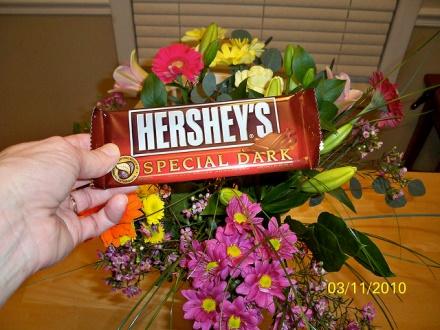
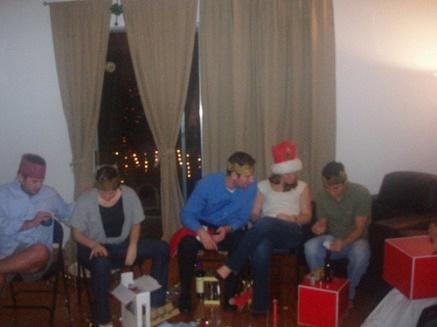
1. 2. 3.
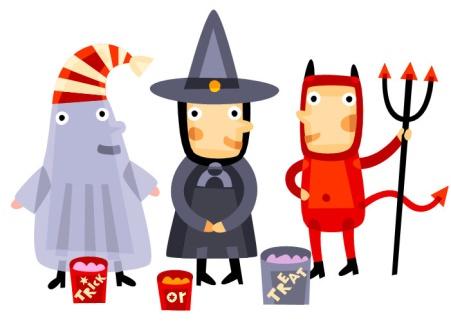
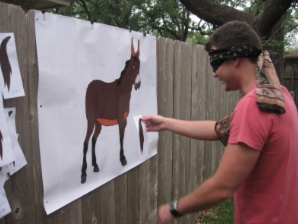
4. 5. 6.
7
_________________________________—________
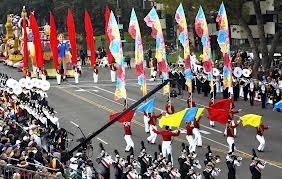
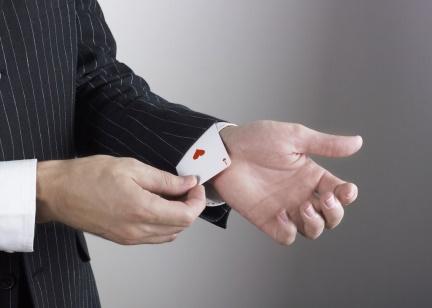
7. 8. 9.
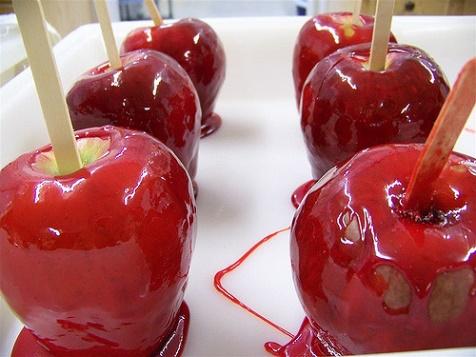
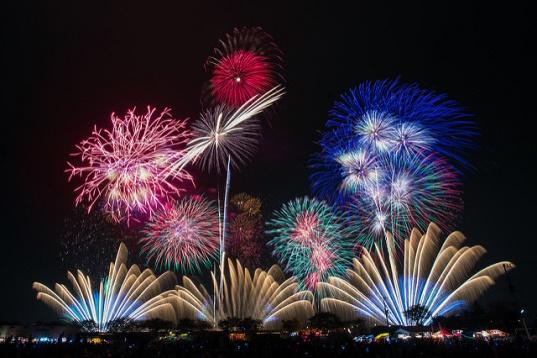
10. 11. 12.
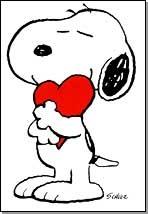

1 13. 14. 15.
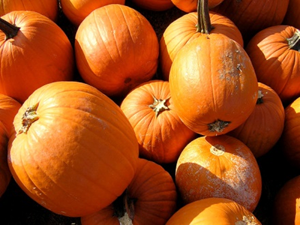
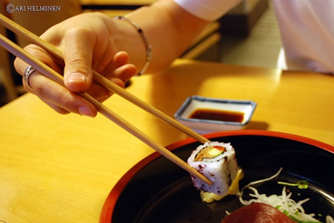
16. 17. 18.
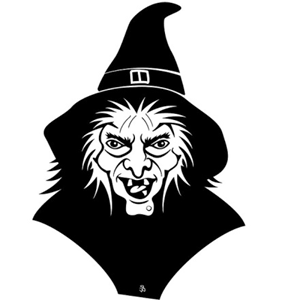
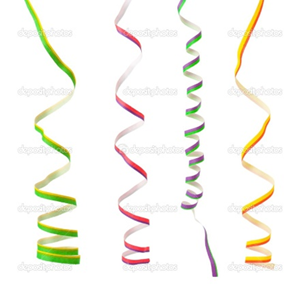
19. 20. 21.
ANSWER SHEET
I. 1.____________________________________
2.____________________________________
3.____________________________________
4.____________________________________
5.____________________________________
II.
1)___________________________________________________________________________________________
2)___________________________________________________________________________________________
3)___________________________________________________________________________________________
4)___________________________________________________________________________________________
5)___________________________________________________________________________________________
6)___________________________________________________________________________________________
III.
1.___
2.___
3.___
4.___
5.___
6.___
7.___
8.___
9.___
10.___
11.___
12.___
13.___
14.___
15.___
16.___
17.___
18.___
19.___
20.___
21.___
Quiz “Holidays and traditions of the UK ”
6 класс
Учитель: Корсан Татьяна Васильевна
Цели:
Актуализация материала по теме «Праздники в Великобритании»
Совершенствование навыков монологической и диалогической речи.
Обобщение материала по теме «Праздники и традиции».
Задачи:
Развивающие:
Создать условия для развития коммуникативных навыков через различные виды речевой деятельности
Образовательные:
-Совершенствовать коммуникативные компетенции учащихся на основе навыков владения новым лексическим материалом
-Закрепить лексические единицы в речи учащихся по теме «Праздники и традиции»
Воспитательные:
-Содействовать повышению уровня мотивации на уроках через средства обучения
-Развивать познавательный интерес учащихся, развивать умение дилогической и монологической речи.
-Развивать интерес и уважение к культуре страны изучаемого языка и к культуре собственной страны.
Organization
Every country has its customs and traditions. Recently we have finished the topic about the holidays of the UK.Today we have the competition in which you can show us your knowledge about holidays and traditions.
We are going to have a competition between two teams(the teacher divides the class into 2 teams) . Now you have to name your teams(the teacher writes down the names of the teams)
Task 1
Look at these pictures and name the holidays and dates of celebrating.
Presentation 1.(Teams get 2 points,one for the correct name and another for the correct date.)
Task 2
Guess the name of holiday.
(Teacher reads the texts and every team writes on a piece of paper the answers,for each correct answer they get 1 point).
1. For more British families, this holiday is the most important festival of the year. It combines the celebration the birth of Christ and the traditional festivities of winter. On the Sunday before churches hold carol services. Carol singers can be heard on the street as they collect money for charity. People decorate their houses with a holly wreath and put a fir tree. Children find presents in their stockings.
2.This holiday means «holy evening». At parties people dress up in strange costumes and pretend they are witches. People make up lamps of pumpkins and other vegetables. Some children dress in white sheets, knock on doors and ask if you would like a «trick or treat». If you give them some money or some sweets, a «treat», they go away. If not, they play a «trick» on you, such as making a lot of noise or splashing water in your face!
3.People send cards to people they love. They should not write their names on the cards. Those who get them must guess who sent them.
4. The name of this holiday comes from “Eostre”, the Anglo-Saxon goddess of spring. Christians celebrate the resurrection of Jesus Christ, many people celebrate the beginning of spring. This holiday is celebrated on the first Sunday after the first full moon in spring. That’s why it’s on a different date each year.People dye eggs in various colours. Bunnies, chicks, lambs and flowers are associated with it because they are born in the spring. Egg rolling game is very popular in Wales.
Task 3
Puzzle.
Presentation 2 (Every team are given 3 puzzles,they need to put them together and to write on the blackboard the inscriptions of these pictures.Teams get 6 points,3 for correct puzzles and other 3 for correct inscriptions)
Task 4
Posters.
Each teams are given two posters( with two pictures on them )and words,first of all they should write down the name of the holidays(according to the pictures) and then to associate the words with these pictures.
Task 5
Quiz(Teacher reads the questions and choices.Teams get 1 point for each correct answer)
1. Why do people dress up as witches?
A)to scary people;
B)to help poor;
C)to eat tasty things;
2. When is Christmas celebrated in Russia?
A)January 7;
B)December 31;
C)December 25.
3. When is Easter celebrated in Britain?
A)In March;
B)In April;
C)In June.
4. What do British give each other on Easter Sunday?
A)easter eggs;
B)easter sweets;
C)easter chocolate eggs.
5. Where does Santa put his presents?
A)Into boxes
B)Into stockings
C)Under the Christmas tree
6. Where do English children usually put the Christmas stockings?
A)under the bed;
B)near the bed;
C)on the fireplace.
It’s time to finish our competition. And now we will know the winner.(The winners get the best marks-5 and another team good marks-4) .
Reflexion.
Children,how did you find today’s lesson?If you liked it take up happy faces(emoticons),if you didn’t like take up sad faces.
Thank you for your work.The lesson is over.See you!
Праздники на английском для детей
Праздник на английском являются одной из наиболее увлекательных тем для изучения любыми возрастными категориями. Мы предлагаем уникальный материал, созданный педагогами для детей и в помощь родителям. Тексты о том, как празднуют Рождество в Великобритании и других странах станут актуальными в любое время года.
Применение тематического материала праздника на английском
Как быстро изучить английские праздники на английском языке? За один или два урока рассказать, что такое праздники в Англии на английском? Дети все воспринимают через игру, ассоциации и сравнения. Например, праздник Хэллоуин на английском языке для детей станет самым запоминающимся, если добавить тематическую игру. Можно привлечь малышей разного возраста, взять костюмы, маски или сделать их самостоятельно. Главная задача – не напугать и активизировать активный вокабуляр. Объем и сложность упражнений рассчитана на возраст от 2 до 8 лет.
В заданиях для печати использованы следующие праздники:
- Рождество;
- Новый год;
- День Благодарения;
- День матери;
- День рождения;
- Хэллоуин и т.д.
Категория активно пополняется администрацией сайта «Развитие ребенка». Применяя упражнения можно повторить счет, научиться находить потерянные слова, описывать героев, писать слова по теме и т.д.
При помощи наших практических заданий можно научить дошкольников и ребят начального школьного возраста рассказывать о моей семье на английском. Малыши с радость начнут делиться традициями и особенностями встречи. Узнают, как в Великобритании проводят Новый год и Рождество.
Что представлено в категории праздники на английском
Сайт Childdevelop расскажет, как лучше всего преподнести праздники для детей на английском языке. Здесь Вы найдете следующие материалы:
- 1. Головоломки, ребусы и лабиринты для разгадывания слов или фраз.
- 2. Кроссворды и задания по типу словарь (для обучения письму и улучшению лексических навыков).
- 3. Карточки и упражнения в картинках, где ребенок учится подбирать или находить нужное.
- 4. Задания на правописание и обучение чтению т.д.
Все это и многое другое можно использовать бесплатно. Достаточно скачать и распечатать упражнения. Так Вы сможете с каждым разом улучшать процесс изучения темы «Праздники для детей на английском». Расскажете им о новогодних традициях, познакомите с иностранными названиями символов и именованием праздников.
Материал отлично подойдет педагогам для создания сценария или презентации. Учителя могут преподнести сюрприз своим ученикам в радостном преддверии праздников на английском языке. Дети с огромным энтузиазмом увлекаются подобным и параллельно развиваются, и готовятся к поступлению в школу, переходу в среднюю школу.

